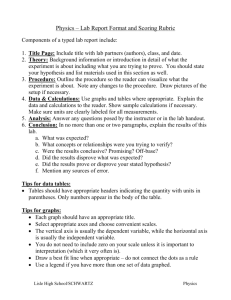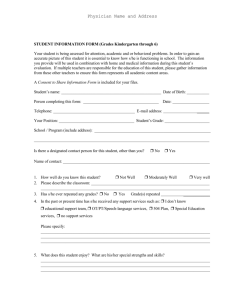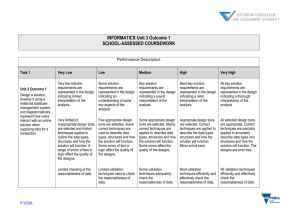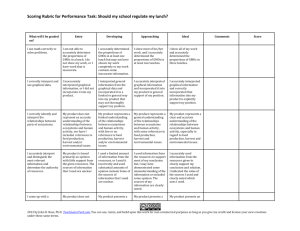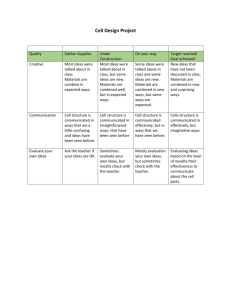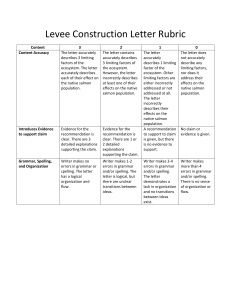Assessment 1. Population distribution 2015
advertisement
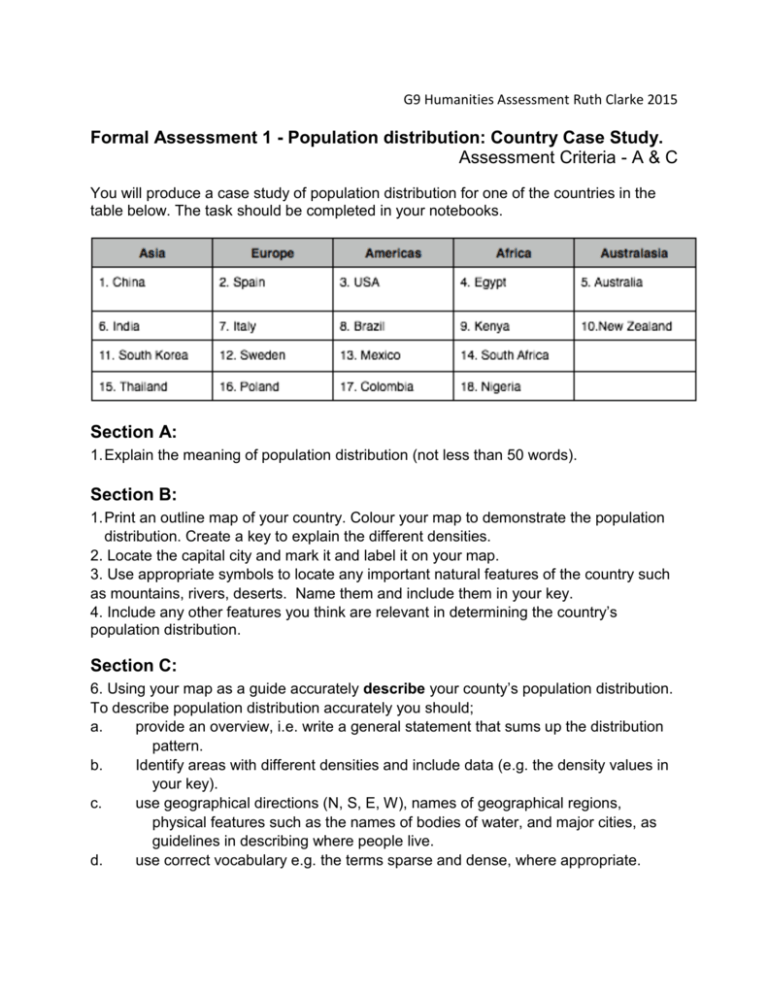
G9 Humanities Assessment Ruth Clarke 2015 Formal Assessment 1 - Population distribution: Country Case Study. Assessment Criteria - A & C You will produce a case study of population distribution for one of the countries in the table below. The task should be completed in your notebooks. Section A: 1. Explain the meaning of population distribution (not less than 50 words). Section B: 1. Print an outline map of your country. Colour your map to demonstrate the population distribution. Create a key to explain the different densities. 2. Locate the capital city and mark it and label it on your map. 3. Use appropriate symbols to locate any important natural features of the country such as mountains, rivers, deserts. Name them and include them in your key. 4. Include any other features you think are relevant in determining the country’s population distribution. Section C: 6. Using your map as a guide accurately describe your county’s population distribution. To describe population distribution accurately you should; a. provide an overview, i.e. write a general statement that sums up the distribution pattern. b. Identify areas with different densities and include data (e.g. the density values in your key). c. use geographical directions (N, S, E, W), names of geographical regions, physical features such as the names of bodies of water, and major cities, as guidelines in describing where people live. d. use correct vocabulary e.g. the terms sparse and dense, where appropriate. 7. Write a detailed paragraph to explain why you think the population is distributed in the way that it is. Consider how the factors studied in class under the headings: “Physical Factors” and “Human Factors” apply to your country and use them as evidence to support your explanation. o Humanities Assessment Criteria: Year 5 (Grade 9 & 10) Criterion A Criterion C Knowledge and Communicating Understanding The student does not The student does not The student does not The student does not reach a standard reach a standard reach a standard reach a standard described by any of described by any of described by any of described by any of the descriptors the descriptors the descriptors the descriptors below. below. below. below. 1-2 The student: uses limited relevant terminology ii. demonstrates basic knowledge and understanding of content and concepts with minimal descriptions and/or examples. 3-4 The student: uses some terminology accurately and appropriately ii. demonstrates adequate knowledge and understanding of content and concepts through satisfactory *Uses less than 4 terms accurately *Provides a basic overview of the population distribution for the country *Description of the population distribution is basic and with statements made supported in part by limited or no references to details on the map, by basic reference to directions and by limited reference to places *Physical and/ or Human factors are referred to but the link to explaining the population distribution is not always clear or is very limited The student: *Uses at least 4 terms accurately in context *Provides an adequate overview of the population distribution for the country *Description of the population The student: i. communicates information and ideas in a limited way, using a style that is limited in its appropriateness to the audience and purpose i. communicates information and ideas satisfactorily by using a style that is somewhat appropriate to the audience and purpose *Map has limited accuracy. The distribution has made a limited attempt at shading, limited appropriate colours have been used and there is no key or title *The map has correctly placed a limited number of physical features as stated in the task *The map has correctly placed a limited number of features chosen by the student. Information on the map has made a limited attempt to be effectively communicated. *Written explanations are limited in their clarity and appropriate language is limited. *Map has been adequately presented. The distribution has been correctly shaded sometimes; in places; appropriate colours have been used and there is either a title or a key 5-6 descriptions, explanations and examples. distribution is adequate and with valid statements made supported in part by simple references to details on the map, by some reference to directions and by some reference to places *Physical and/ or Human factors are adequately used to explain the population distribution in dense or sparse areas and to construct satisfactory conclusions The student: *Uses at least 7 terms accurately in context *Provides a substantial overview of the population distribution for the country *Description of the population distribution is substantial and with valid statements made supported in part by some reference to details on the map, by reference to directions ((N,S,E,W) and by reference to specific places *Physical and Human factors are substantially used to explain the population distribution both dense and sparse areas and to construct conclusions uses a range of terminology accurately and appropriately ii. demonstrates substantial knowledge and understanding of content and concepts through accurate descriptions, explanations and examples. The student: i. communicates information and ideas accurately by using a style that is mostly appropriate to the audience and purpose or both but not effective choices. *The map has adequately placed a few physical features as stated in the task *The map has adequately placed a few features chosen by the student. *Information on the map has been effectively communicated in places. *Written explanations are sometimes communicated to the audience using somewhat appropriate language. *Map has been satisfactorily presented. The distribution has been correctly shaded sometimes; sometimes appropriate colours have been used and there is either a title or a key or both but not effective choices. *The map has satisfactorily placed some physical features as stated in the task *The map has satisfactorily placed some features chosen by the student. Information on the map has sometimes been effectively communicated. *Written explanations are sometimes clearly communicated to the audience using appropriate language. 7-8 The student: consistently uses a wide range of terminology effectively ii. demonstrates detailed knowledge and understanding of content and concepts through thorough, accurate descriptions, explanations and examples. *Uses at least 10 terms accurately in context *Provides an accurate overview of the population distribution for the country *Description of the population distribution is accurate and with valid statements made supported throughout by reference to details on the map, by reference to directions (N,S,E,W) and by reference to specific places *Physical and Human factors are effectively used to explain the population distribution both dense and sparse areas and to construct well supported conclusions The student: i. communicates information and ideas effectively and accurately by using a style that is completely appropriate to the audience and purpose *Map has been accurately presented. The distribution has been correctly shaded throughout; appropriate colours have been used and there is an effective title and a key *The map has accurately placed all required physical features as stated in the task *The map has accurately placed the features chosen by the student. *Information on the map has been effectively communicated. *Written explanations are accurately and clearly communicated to the audience using appropriate language.


